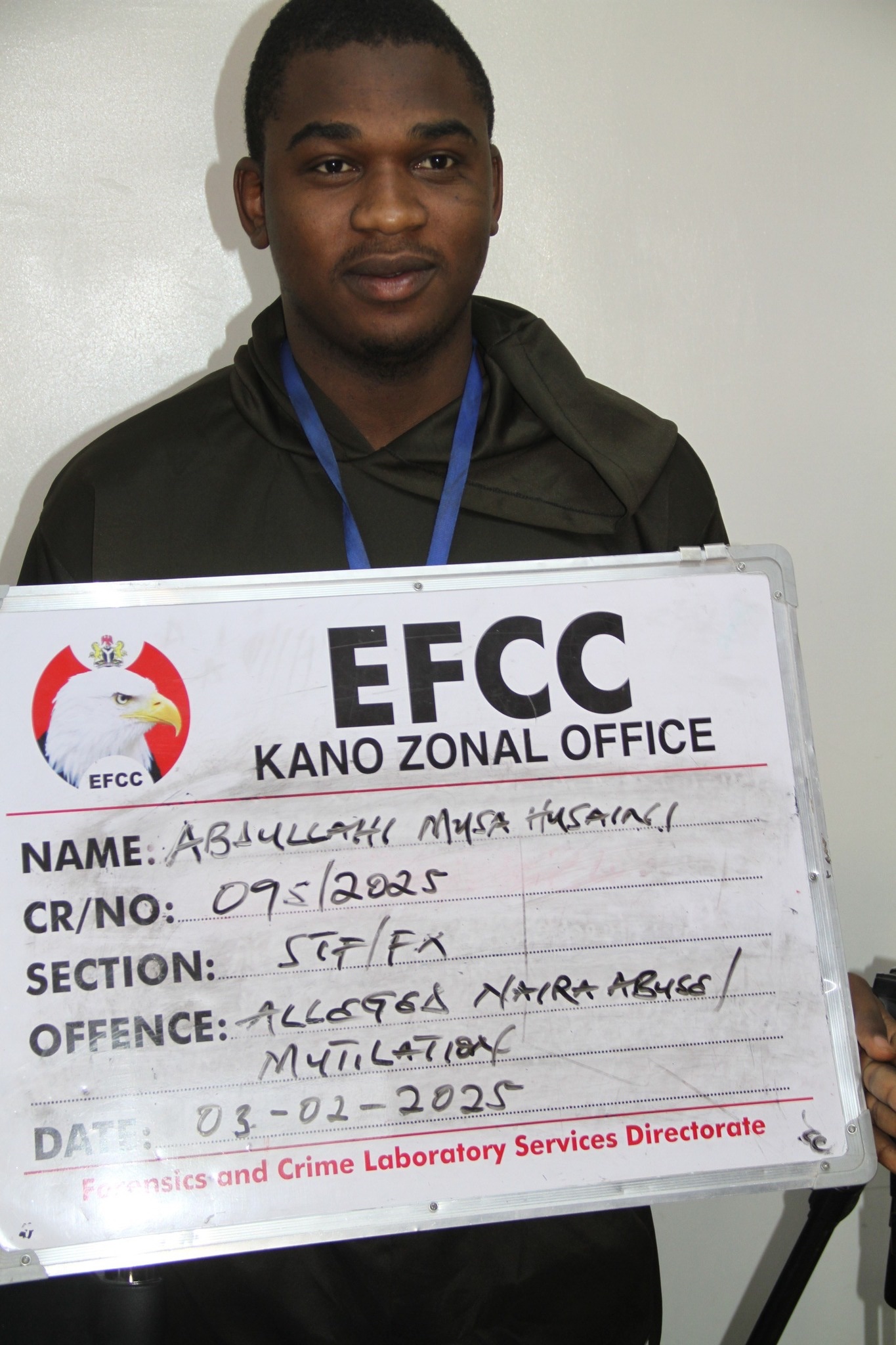
Glamour to Guilt: Popular Makeup Artist Sentenced to Six Months Imprisonment for Naira Abuse

In a dramatic turn of events that has sent shockwaves through both the beauty industry and social media circles, a well-known makeup artist, Abdullahi Musa Huseini, popularly known as Amuscap, has been sentenced to six months in prison by the Federal High Court sitting in Kano. The conviction, handed down earlier today, follows a one-count charge brought against him for abusing and mutilating the Nigerian currency, the Naira.
The court’s decision comes in the wake of growing concerns by Nigerian authorities over the increasing trend of currency abuse, especially among celebrities and social media influencers who often display acts of Naira spraying, defacing, or mutilating banknotes in public events and online platforms. The case against Huseini was seen by many as a litmus test of the government’s resolve to clamp down on the rising wave of Naira abuse that has become normalized in certain quarters.
Huseini, who enjoys a sizable following on social media and is revered for his mastery in makeup artistry, was arrested and arraigned before the Federal High Court in Kano by the Economic and Financial Crimes Commission (EFCC). The charge against him was straightforward but damning: abuse and mutilation of the Naira, an offense that is punishable under the Central Bank of Nigeria Act, 2007. The popular makeup artist, clad in a modest outfit and appearing visibly subdued, pleaded guilty when the charge was read to him in court.
The presiding judge wasted no time in delivering the sentence after Huseini's guilty plea, sentencing him to six months in prison. The court’s swift decision underscores a zero-tolerance policy and sends a strong message to others who may view such acts as trivial or unpunishable.
According to sources close to the case, Huseini had been seen in a widely circulated video spraying and tossing Naira notes during a celebration. The video, which reportedly went viral and drew the attention of regulatory agencies, served as key evidence in the prosecution’s case. Despite the fact that Huseini’s actions may have seemed harmless or festive in the moment, they constituted a clear violation of Nigerian law.
The Central Bank of Nigeria has in recent times intensified its advocacy against the abuse of the Naira, reiterating that the currency is a national symbol and should be treated with respect. Spraying, stepping on, or writing on Naira notes, among other forms of defacement, are offenses that are punishable by law. The apex bank has also partnered with law enforcement agencies, including the EFCC, to identify and prosecute offenders, regardless of social standing or popularity.
The conviction of Huseini, a creative professional who made a name for himself in the beauty and fashion community, has sparked mixed reactions online. While some argue that the law must take its course to protect the integrity of the Naira, others believe that the punishment may be too severe for what they perceive as a cultural or celebratory act. However, legal experts insist that ignorance or perceived triviality of the law is no defense.
For years, the act of spraying money at weddings, parties, and public gatherings has been a common practice in Nigeria, often viewed as a display of wealth or goodwill. But as authorities step up efforts to sanitize the system and protect national symbols, individuals and groups are being warned that there will be consequences for flouting these laws. Huseini’s case may just be the beginning of a wave of prosecutions, as regulatory agencies dig deeper into public records and social media content for similar violations.
Though Huseini’s legal team did not contest the charge, there is still a possibility of an appeal or alternative sentencing options such as community service or fines, which are sometimes considered in first-time offenses. However, at the moment, he is expected to begin serving his sentence as ordered by the court.
The case has also ignited broader conversations about civic education and awareness in Nigeria. Many citizens remain unaware of the laws prohibiting Naira mutilation, raising questions about the effectiveness of past awareness campaigns by the CBN and other government agencies. As discussions trend on social media, some users are calling for more aggressive public enlightenment, especially targeting young people, event organizers, and celebrities who often unwittingly engage in such practices.
Meanwhile, industry colleagues and fans of Huseini have expressed shock and disappointment at the development. A few have taken to social media to express support for the embattled makeup artist, while others are using the incident as a cautionary tale about the dangers of flaunting wealth or engaging in seemingly harmless trends that violate the law.
In a brief statement made shortly after the sentencing, a spokesperson for the EFCC reiterated the commission’s commitment to upholding financial laws and prosecuting individuals who undermine the nation’s monetary system through acts of recklessness and disregard for the Naira. He emphasized that more arrests and prosecutions are likely to follow as the EFCC continues to scrutinize public events and online activities that involve the defacement of currency.
As Abdullahi Musa Huseini begins his prison term, the glamour and glitz that once defined his professional persona have been temporarily replaced with the grim reality of confinement. His story now serves as a sobering reminder that no one is above the law, and that the symbols of Nigeria’s sovereignty, such as its currency, must be protected at all costs.
Only time will tell if this conviction will spark meaningful change in public behavior regarding the handling of the Naira. For now, the message from the Federal High Court in Kano is loud and clear: Naira abuse will no longer be treated lightly, regardless of one’s status or fame.


